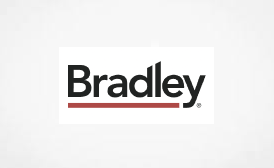By on
I adore the film (and, as always, I stress the word “film”) Trading Places. It has it all: Eddie Murphy hitting his prime, a wonderfully smug Dan Akroyd, Jamie Lee Curtis doing her thing, and it’s all wrapped up in a caper-turned morality tale about the orange juice futures market. There are so many wonderfully quotable lines from that movie, but when I read a recent decision from a federal court in Connecticut remanding a hemp case to state court, the one that came to mind was “[n]obody wants to buy your drugs here, Louie.”
This case caught my eye because it hit at the intersection of my practice as a cannabis lawyer and a litigator. The question presented: Does a complaint alleging wrongful sales of intoxicating hemp products present a federal question such that a federal court has jurisdiction to hear the case even though the complaint was originally filed in state court?
Lest our non-lawyer readers gloss over this story as being an instance of lawyers naval gazing about procedural issues that put non-lawyers to sleep, there are significant consequences to the question of which courts are allowed to hear cases involving the legality of hemp sales.
Law360 has the backstory:
U.S. District Judge Sarala V. Nagala said there is no reason for a regulatory suit brought under Connecticut’s Unfair Trade Practices Act to be heard in federal court. The ruling means that [the Plaintiffs] must head back to state court to defend against claims brought by Connecticut Attorney General William Tong. This suit is one of a number brought against wholesalers in the state as part of a larger crackdown by Tong. Each company has been accused of different violations, but the complaint against RZ Smoke more generally accuses them of selling “intoxicating hemp products that were not tested by the state and contained more than 5 milligrams of THC per serving size.” Ultimately, RZ Smoke argued the case should remain out of state court because the THC found in vapes and other products it sold were derived from hemp, which is governed by federal law, specifically the 2018 Farm Bill. “The question of whether the Products are ‘hemp’ under federal law is ancillary to the central question of whether the Products are packaged and labeled in a manner that deceives potential consumers into thinking that the Products are part of Connecticut’s legal, regulated cannabis market,” the judge said. “Because the state’s CUTPA claims do not require proof that the intoxicating hemp products either are or are not ‘hemp’ as defined in the 2018 Farm Bill, no federal issue is actually disputed,” the judge said.

